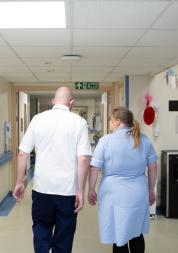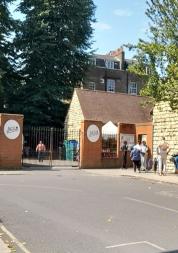Finding mental health advice and support in Vassall

Summary
Our review sought to find out: 1. Where community members have or would look for information or advice for a mental health concern 2. What mental health services are known to local community members 3. What preferences people have for where they would seek mental health advice.
We decided to focus our data collection in one area, Vassall Ward, because we wanted to gain an understanding of what was known about mental health services from a ‘community’ perspective. In this case using geographical boundaries to define the ‘community’ the need for mental health support is likely to be higher in areas such as Vassall where social and economic deprivation is higher than in other parts of the borough. The area has one of the highest percentage of non-white British residents in Lambeth, with over half of residents indicating that they are from an ethnic minority. Our findings may be useful for the Lambeth Early Action Partnership, as Vassall is one of the four wards it is investing in.
The findings and analysis presented in this report are based on responses to a mixture of methods – a survey as well as interviews with community members from Vassall Ward undertaken over seven weeks in August and September 2015.
Key findings
-
6 in 10 people said they’d speak to their GP, 4 in 10 would speak to a family member or friend, and nearly a quarter of respondents would use the internet to seek mental health information or advice for themselves or someone close to them.
-
More community members with a ‘white1 ’ ethnic background - 8 in 10 people - said they would choose to speak to a GP than those with a ‘black2 ’ ethnic background where 5 in 10 people indicated a similar preference. We saw a parallel shift with 2 in 10 people from the ‘black’ community compared to almost no ‘white’ community members suggesting that they would seek help from a religious leader.
-
The following services were identified by 1 in 10 respondents as ones that they would seek help from: Mental Health Charity, Community Mental Health Team, an anonymous helpline, self-refer to talking therapies/Improving Access to Psychological Therapies (IAPT) service or go to Accident and Emergency
Our study found that the three most commonly accessed and preferred sources of information for mental health advice, information and support were an individual’s GP, friends and family, and the internet. On the whole, these preferences remained the same across all our demographic groups. Our survey was purposefully kept short and so did not allow us to understand the quality of the experience of getting advice and information from these sources – this will be an area for further research. However, we did find a particularly low level of awareness of non-GP services to support mental health among community members. With many people turning to their friends and family for information, it is clear that improving broader community awareness of the services available locally needs to be a priority.
Downloads
If you need this report in a different format, please contact us
info@healthwatchlambeth.org.uk
020 7274 8522

